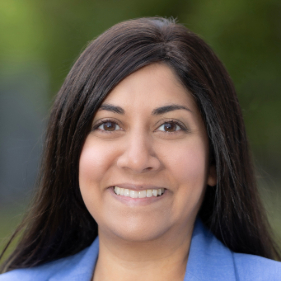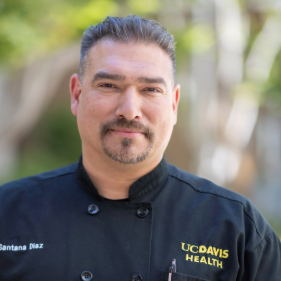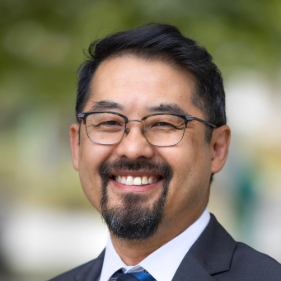UC Davis Health is expanding access to healthy, locally sourced and culturally relevant foods through its holistic nutrition initiative called the Foodways to Health program.
The program enhances access to fresh produce and medically tailored meals. It also promotes climate-friendly food production and deepening community engagement.
This "foodways" approach recognizes the continuum of how ingredients are produced and delivered, how meals are prepared and how people eat — as individuals, families and communities.
The successful program was recently featured in an article in the New England Journal of Medicine Catalyst, which highlighted UC Davis Health's role in redefining how food supports health and healing.
"UC Davis Health is redefining the role of food in health care and expanding access to nutritious, culturally relevant meals."-Reshma Gupta
"Food is a powerful healing agent throughout life. The Foodways to Health program is designed to stay in fellowship with patients and communities throughout their journey," said Reshma Gupta, chief of population health and accountable care for UC Davis Health. "Through this program, UC Davis Health is redefining the role of food in health care and expanding access to nutritious, culturally relevant meals."
What is "Foodways to Health?"
Launched in 2021, Foodways to Health is rooted in the Food is Medicine philosophy. It integrates nutritious food into health care to prevent and manage diet-related conditions. The program was developed by a team of experts in population health, food and nutrition services and health equity to reflect a holistic approach to patient care.
This medically tailored meals initiative serves patients who qualify the hospital for reimbursement based on their diet-related condition and enrollment in a Medicaid program. Since its launch in 2024, the program has delivered customized, nutritious meals to nearly 3,500 patients.
The program also promotes food literacy through culturally relevant resources, such as simple recipes, cooking demonstrations and educational trainings.
"These tools empower patients to sustain healthy eating habits that fit their cultural traditions and support sustainability," Gupta explained.
Building a regional food system
UC Davis Health has long embraced a farm-to-fork approach to healthy eating. Since 2017, the medical center has served as a national model for sustainable procurement food practices in health care. It has demonstrated how nutritious, environmentally conscious meals can support healing and long-term wellness.
Rather than relying on highly processed or pre-packaged meals, the Food and Nutrition Services team prioritizes plant-based options. The team sources nearly half of its ingredients from farms and ranches within a 250-mile radius or within the state of California.
"We all have a connection with food — it's a deeply personal relationship," said Santana Diaz, executive chef and director of Culinary Operations and Innovation at UC Davis Health. "By reducing unnecessary additives and preservatives, and educating our patients, visitors and staff, we're helping build a healthier community."
"By reducing unnecessary additives and preservatives, and educating our patients, visitors and staff, we're helping build a healthier community."-Santana Diaz
Over the past six years, UC Davis Health has expanded partnerships with local farmers to ensure greater transparency in food sourcing and supply.
"This approach not only results in healthier, more flavorful meals that are better for the environment, but also strengthens our local economy and helps reduce our carbon footprint," Diaz added.
Meeting the need for culturally relevant foods
Food is Medicine models are gaining traction nationwide. However, many of these programs rely on standardized, "off-the-shelf" meals that often lack cultural relevance for diverse patient populations.
Not so at UC Davis.
"Providing basic meals without considering cultural relevance can undermine patient engagement and satisfaction."-Hendry Ton
"Providing basic meals without considering cultural relevance can undermine patient engagement and satisfaction," said Hendry Ton, associate vice chancellor for health equity by design for inclusive excellence. "Simply labeling certain foods as 'good' or 'bad' can dismiss traditional recipes passed down through generations, which are deeply tied to cultural identity."
To address this gap, the Foodways to Health program collaborates with community-based organizations and local food vendors to offer a variety of culturally meaningful meals informed by health and nutrition science.
"By doing this, we acknowledge that traditional recipes are essential to community identity," Ton added. "It's a key step in helping patients embrace the benefits of a healthy diet."









